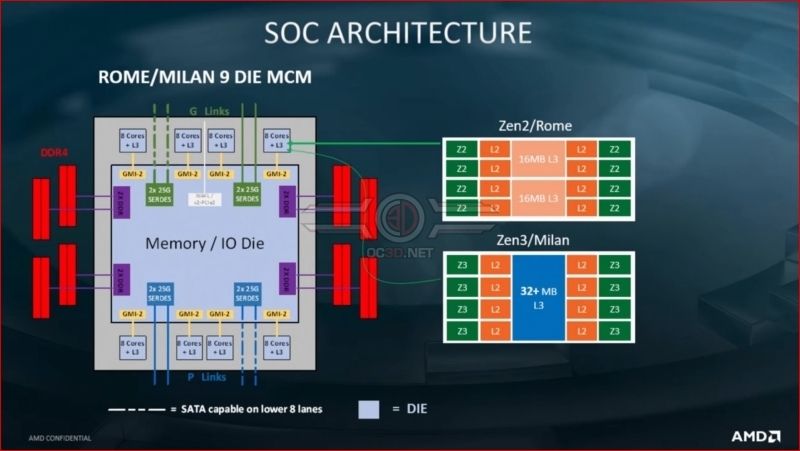AMD Zen 3 architecture is expected to reach end-users later this year, bringing new architectural improvements and the promise of higher performance/efficiency over the current Zen 2 hardware that powers the Ryzen 3000 processors.
There is talk of 10-15% IPC performance improvements in Zen 3
If the recent leaks from AdoredTV are credible, AMD points to an improved CPI and higher clock speeds. It is rumored that AMD has achieved a 10-15% increase in single-threaded CPI with Zen 3, along with an increase in clock speeds. This change in IPC/clock speed means that Zen 3 will offer Ryzen and EPYC users a significant increase in overall system performance, which is excellent news for everyone.
What needs to be said here is that much of the data from AdoredTV is not new, as the 13% increase in average CPI integer performance has been reported before. An increase of 10-15% and an average of 13% are not much different, and the other information from Adored comes mainly from the first leaks reported in Genoa in October 2019.
Significant cache changes
This is not new information, but AMD’s filtered Zen 3 foils have resulted in a combined L3 cache for each chip. This change unifies the L3 caches on each die in the CPU and makes the access times to the L3 cache on a Zen 3 chip more consistent.
Larger cache sizes often mean slower cache latencies, and this is also true for the new Zen, although the source states that these latencies are only “slightly” increased. However, this increase is mitigated by more consistent cache access times, making it easier to share information between CPU cores.
This change could help increase the multithreading performance of Zen 3, especially on the Ryzen series processors with only one tool. This change could also improve the performance of the Zen 3 in games, as well as doubling the L3 cache of the Zen 2, which was achieved on the older AMD Zen/Zen+ series chips and helped them improve performance in games.
Based on these slides, Zen 3 will mark another major change in the design of AMD’s Zen CPU architecture, offering changes that will be of great benefit to internal processor cache latencies. Although little is known about AMD’s Zen 3 core design, these slides show us that AMD’s next-generation architecture aims to improve and mitigate some of the architectural flaws present in Zen 2. These flaws have already been greatly reduced in Zen 2, but Zen 3 will try to curl the loop.
